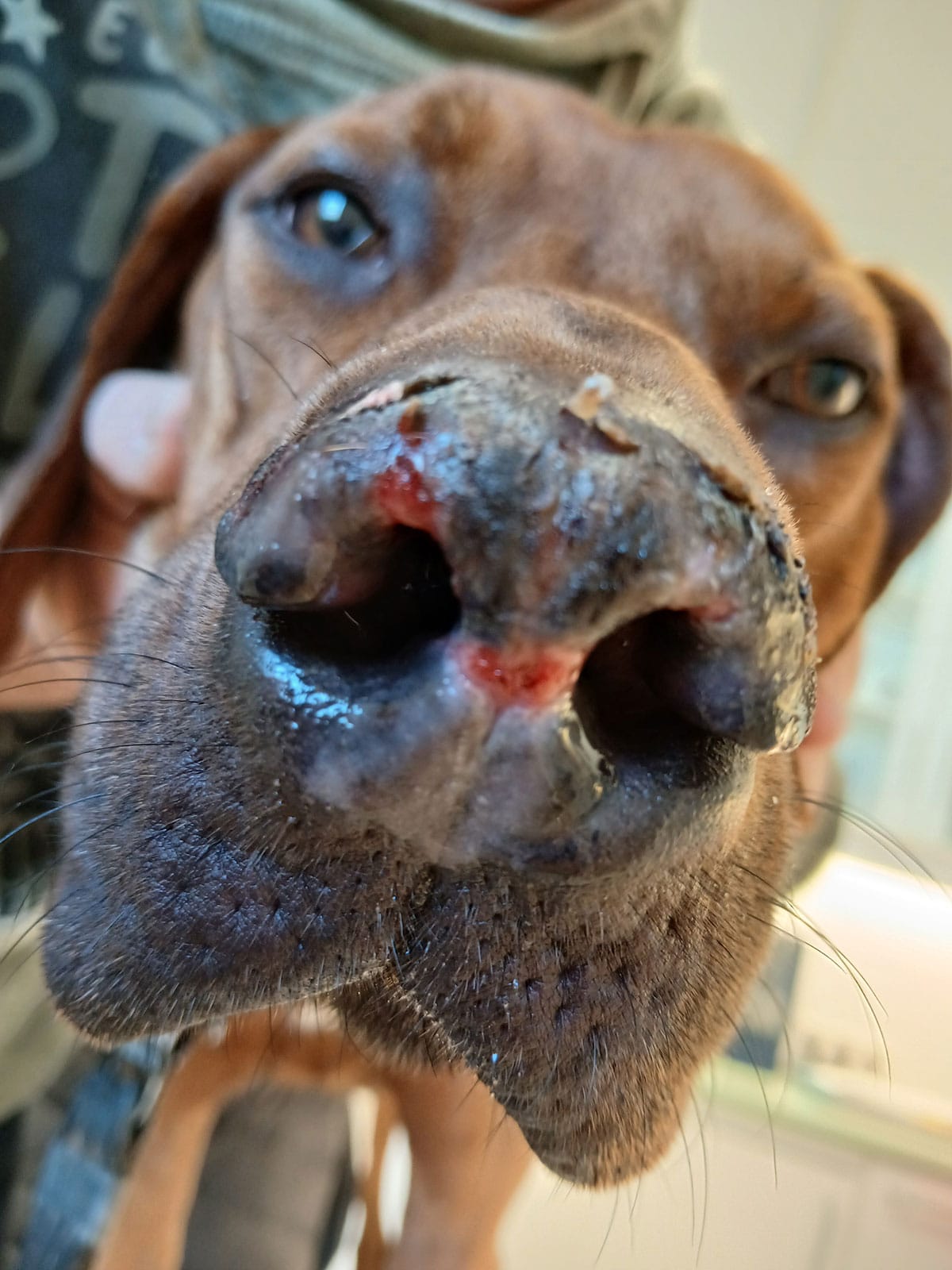When your dog’s immune system, designed to protect them from external threats, mistakenly attacks their own body, it can lead to a range of health issues, including painful skin eruptions. These autoimmune skin conditions can manifest as spontaneous, nasty lesions, often causing significant discomfort and distress for your canine companion. Understanding the potential causes, diagnostic challenges, and treatment options is crucial for pet owners facing these complex dermatological problems. Learn more about common dog skin conditions.
When an autoimmune disorder targets the skin’s epidermis and dermis, these layers can separate, leading to the formation of painful, blistering lesions. As these fragile areas break down, they may develop erosions, crusts from accumulated debris and fluid, and subsequent hair loss. Secondary bacterial infections are a common complication, further exacerbating the skin’s condition.
While the exact triggers for autoimmune skin diseases in dogs are not always clear, several factors are suspected. Severe, recurrent cases of atopic dermatitis, characterized by itching, sneezing, rashes, watery eyes, and paw chewing, can sometimes predispose a dog to developing autoimmune skin issues. Although viruses are known triggers in humans, their role in canine autoimmune skin conditions is not well-documented. A genetic predisposition is also suspected, with certain breeds like the Akita showing a higher incidence of superficial pemphigus, according to Dr. William H. Miller Jr., professor emeritus of medicine at the Department of Clinical Sciences.
In some instances, specific medications can act as triggers. Antibiotics such as sulfonamide, penicillin, and cephalosporin have been implicated. Additionally, topical medications used for external parasite control, including those containing fipronil, amitraz, S-methoprene, dinotefuran, pyriproxyfen, or permethrin, may initiate the reaction in susceptible dogs. In such cases, discontinuing the offending drug can lead to the restoration of normal skin. However, for many dogs, ongoing treatment is necessary to manage and maintain skin health.
Diagnosing Autoimmune Skin Diseases
The diagnosis of autoimmune skin diseases in dogs, while not common, requires a systematic approach. A thorough medical history is vital to rule out any drug-induced conditions or parasitic infections that could mimic autoimmune symptoms. If these possibilities are excluded and the cause remains unclear, a skin biopsy becomes the definitive diagnostic tool.
Performing an accurate biopsy can be challenging. Ideally, the biopsy should capture a vesicle or pustule before it erodes, as these delicate lesions are often found intact only briefly. Furthermore, any prior treatment can potentially alter biopsy results. Dr. Miller emphasizes that without a biopsy, it can be difficult to definitively diagnose an autoimmune skin disease, even with extensive experience.
The cost of biopsies can be a concern, leading some veterinarians to initially trial treatments like steroids. If steroids prove ineffective or symptoms return after cessation, a biopsy may then be pursued. A significant drawback of this approach is the necessary 14 to 21-day waiting period after steroid use before a biopsy can be accurately interpreted, as steroids can alter histological findings and lead to misdiagnosis.
Treatment Strategies for Canine Autoimmune Skin Diseases
Treatment for autoimmune skin diseases in dogs typically involves a combination of medications to achieve faster and more effective results while minimizing the risk of side effects from individual drugs. Glucocorticoids, commonly known as steroids (such as prednisone), are often a starting point, either alone or in conjunction with potent immunosuppressive medications like azathioprine or cyclosporine (Atopica).
While steroids are cost-effective and easily administered at home, long-term use can lead to side effects. These can range from increased thirst and urination to more serious conditions such as diabetes mellitus, liver disease, and iatrogenic hyperadrenocorticism (Cushing’s disease). Pulse therapy, involving intermittent high doses of steroids, may be recommended for some dogs, transitioning from daily lower doses to periodic administration. For milder or localized issues, topical steroids or immunomodulators like tacrolimus might be sufficient to induce remission.
Antibiotics are frequently prescribed to combat secondary bacterial infections that thrive in compromised skin. A culture and sensitivity test is recommended to identify the most effective antibiotic. Addressing underlying conditions like atopy or other allergic dermatitis is also crucial for successful management. Similarly, secondary yeast or fungal infections require concurrent treatment.
Emerging therapeutic avenues include acupuncture, often in combination with herbal remedies such as radix Curcuma wenyujin, Tripterygium wilfordii, Artemisia annua, and Berberis vulgaris. Oclacitinib (Apoquel) shows promise, though further research is needed before widespread adoption. A significant advantage of oclacitinib is its generally lower incidence of significant side effects compared to long-term corticosteroid use.
Some dogs may experience periods of remission, allowing for a reduction in medication or even temporary cessation. However, recurrence is common in most cases.
It’s also important to note that while shampoos might seem beneficial, they can sometimes be counterproductive. Commercially available shampoos with low concentrations of hydrocortisone may not be potent enough. More importantly, the mechanical action of applying and rinsing shampoos on fragile autoimmune skin can exacerbate the condition. Therefore, holding off on shampoos during active flare-ups is often advised. Consult with your veterinarian for the most appropriate diagnostic and treatment plan for your dog’s specific condition.

